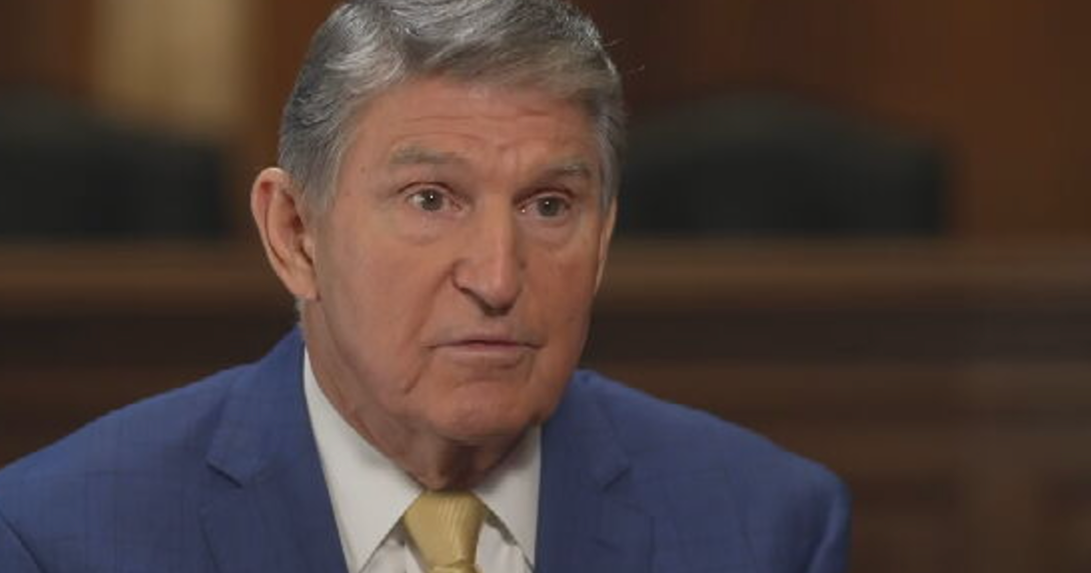The following is a transcript of an interview with Dr. Deborah Birx, the White House coronavirus response coordinator in the first Trump administration, on “Face the Nation with Margaret Brennan,” airing Nov. 17, 2024.
MARGARET BRENNAN: Dr. Deborah Birx served as the White House coronavirus response coordinator during Donald Trump’s first term. She also had a long career in public health in the military, working on AIDS in Africa, at the State Department and at the CDC. Good morning. Welcome back.
FORMER WHITE HOUSE COVID RESPONSE COORDINATOR DR. DEBORAH BIRX: Good morning, Margaret. I’m happy to be with you.
MARGARET BRENNAN: So Dr. Birx, I want to ask you about your views on public health, which we are looking at because of this nomination, possibly from Robert F Kennedy Jr. HHS has a broad portfolio here, vaccines, drugs, oversees Medicare, regulates food, beauty products, baby food, reproductive health care. What would be the impact if someone with no government experience were in that top job?
DR. BIRX: Well, I think the most important thing is what team he would bring with him, because you’re talking about a really big company with a very diverse group that you really need to bring together and, quite frankly, eliminate some of them. the duplication between these agencies to really become more cost effective, and so really have a management person at his side, a chief of staff, maybe that really came from the industry that would know how to bring together and look and bring together those individuals who are the run other agencies because it is a very complicated department. HHS is probably one of our most complicated departments.
MARGARET BRENNAN: So you’re saying that people with experience around him, we should look at the lower-level appointments that Mr. Trump could appoint. What’s so interesting about RFK Jr. is how he has, in some ways, tapped into this health movement in America. He’s talking about more regulation, not less when it comes to American food. Here’s part of what he said:
ROBERT F KENNEDY JR.: I’m just going to tell the grain companies to take all the dyes out of their food. I immediately remove processed foods from the school lunch. 10 percent of food stamps go to sugary drinks and soft drinks. We are creating diabetes problems and feeding our children food that is poison, and I am going to put a stop to that.
MARGARET BRENNAN: Those sound like good causes. Can you actually take on big agriculture and implement that?
DR. BIRX: I think because many of the people who are suffering the most from these additives are actually people in our rural areas. 16 percent of Americans live in rural areas, but they supply all our oil and gas, all our fiber, all our cotton, and all our food. And diabetes levels in these communities, because of their access to certain foods, are extremely high. I just came out of the field: 58 percent of adults in the city I just visited already had diabetes or prediabetes, based on a house-to-house survey. This is the reality of America and so I hope that he will bring his transparency to all Americans and that we will really tackle these issues one by one. I think everyone across America wants to have healthy children who they know will grow up and not end up with the complications of diabetes or heart disease.
MARGARET BRENNAN: It was very difficult for Michelle Obama, when she was first lady, to get all of that done, and it can be difficult for lawmakers who come from some of those farm states to vote against their own interests when it comes to agricultural subsidies. and the like.
DR. BIRX: Well, we’re not talking about eliminating good food. We’re talking about using all of their ingredients in a way that’s healthier for Americans and I think that’s what people are asking for right now. Europe did it years ago, and I think we are capable of doing it. We are very smart, have a high level of technology, we can make food tasty without a lot of these additives, because we can see other groups doing it in a small way. So we’re not talking about eliminating the need for wheat and grains. We’re talking about bringing them together in a healthy way.
MARGARET BRENNAN: I also want to ask you about some of the things he said about vaccines. As you know, vaccination rates in America are declining. He said things like restore transparency around them. It’s not really clear what that means. Why do you think there is a decline in vaccination?
DR. BIRX: I think it has two parts. I think when we talk about public health issues, we don’t acknowledge the concerns because when my children went to school, there was maybe one in a thousand children with autism who had been diagnosed with autism. Now there are three per 100. So every mother sees a classroom full of toddlers where one of the children has autism. That’s scary for mothers and fathers, they want to know why. So it is not good enough to just say that vaccines do not cause autism. It’s about finding the cause of autism and reversing it.
MARGARET BRENNAN: Well, I think a lot of people would absolutely agree that it’s ridiculous that there hasn’t been a lot of research into the cause of autism, but what he has said in the past is that autism is caused by vaccines and that there is no scientific basis for that conclusion as I understand it.
DR. BIRX: That’s right. And that’s why when he talks about transparency, I’m actually excited that in a Senate hearing he would put forward his data and that the questions coming from the senators would bring out their data. What I know for sure is that he is a very smart man who can put forward his data and evidence, and we can have a discussion that many Americans already think is a problem. So until we can have that transparency and that open discussion on both sides, I know the members have great staffers who will bring great questions from their constituents, and hearing that would be a way for Americans to really see the data where you have left. that we cannot see that cause now, but what causes it? And so you’re absolutely right: addressing the root cause will be critical, and I think what has confused people is that we haven’t been clear about what COVID vaccines do and don’t do. And so now people are wondering, what do my childhood vaccines do and what don’t they do, and they don’t understand that some of the vaccines their children get protect them from disease and create herd immunity, and that some of the ones they get are just for their child, such as H flu and pneumovax to protect their child from a very serious disease, and we don’t explain all this properly.
MARGARET BRENNAN: Well, and that’s why the messenger is important–
DR. BIRX: Yes, that’s right.
MARGARET BRENNAN: –so much about this, and that’s why his past statements are under scrutiny. You have spent much of your career working on AIDS. He has said that he takes no position on the relationship between HIV and AIDS, but then he has outlined alternative theories in his book, saying that Dr. Fauci never produced a study to prove his hypothesis using “accepted scientific evidence.” Do you agree with that statement, and with HIV and AIDS?
DR. BIRX: Well, after spending a career understanding the progression of HIV and AIDS, the HIV virus is the cause of AIDS. There’s a whole bunch of things that happen, and I think what HIV has taught me is that you have to: It’s asymptomatic for 10 years. , and we are finally recognizing the importance of asymptomatic disease progression and disease transmission. That’s what HIV has taught us. But what other HIV taught us was the entire human immune system. By investing in HIV research, we learned about CAR T cells that we use today in cancer. So a lot of this research and investment is paying off in other areas and I think he’ll see that once he gets to HHS.
MARGARET BRENNAN: If he’s open to the data. Dr. Birx, thank you. We’ll be right back.






